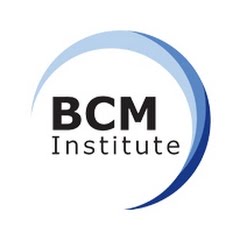1 PURPOSE
- This policy applies to all business entities in BCM Institute. All employees are required to abide by and support BCM.
- In cases where local laws and regulations and this policy prescribes different standards, the stricter standards must be complied with.
- BCM is essential to BCM Institute. Whatever the circumstances, BCM Institute has an obligation to continue to deliver its services to its customers and to protect the interests of key stakeholders.
- BCM Institute will dedicate resources and budget for business continuity (BC) planning. Roles and responsibilities in BCM shall be clearly defined. The BCM program developed shall be aligned with international BCM good practices.
2 SCOPE
- Scope of Business Continuity Management (Appendix I)
2.1 Business Continuity Management (BCM)
- BCM is an ongoing management process employed by BCM Institute to identify potential risks-impacts, and establish the necessary arrangements and plans to sustain its business continuity capabilities.
- Examples of such plans include business continuity plan, IT disaster recovery plan, crisis management plans, and so on.
2.2 Business Continuity (BC) Plan
- The BC Plan focuses on the continuity of critical business functions in the event of a disaster.
2.3 IT Disaster Recovery (DR) Plan
- The IT DR Plan is used to manage the recovery of application systems, data centres and telecommunication services in the event of a disaster.
2.4 Crisis Management (CM) Plan
- Other disruptions such as incidents, emergencies and crises to business which are not classified as a disaster may be dealt with separately under crisis management planning.
3 RESPONSIBILITY
- In the event of a disruptive incident or disaster, the objectives of BCM Institute, as a whole, are to minimise the impact of the business interruption, irrespective of cause, and to provide an acceptable minimum level of business operations, until normal business operations are resumed
- Toward this end, all BC and supporting plans developed by the business units will address their respective critical activities, and remain aligned with the corporate-wide BCM objectives, which are to:
- Protect the lives and maximise the security of staff members.
- Meet regulatory and legislative requirements.
- Continue Critical Business Functions
- Continue to serve existing customer business giving priority to critical operations.
- Reduce the business and financial losses
- Honour contractual obligations were bearing high reputation and financial impact.
- Safeguard vital information
- Maintain public confidence and goodwill
4 PROCEDURE
4.1 Business location
- Business Continuity Management (BCM) is a strategic management process that will enable BCM Institute to continue, recover and resume critical business functions or operations within a reasonable and pre-determined timeframe upon the occurrence of a disruption.
- BCM Institute operates from its main offices in Singapore and operates at:
- BCM Institute
- 6 Ubi Road 1, #06-09, Wintech Centre
- Singapore 408726
- Tel: 6748 1528 Fax: 6748 1510
- Email: info@bcm-institute.org
- Click here to view the directions to BCM Institute
4.2 BCM Policy Development (Appendix II)
- The BCM Steering Committee shall be responsible for the maintenance of the BCM Policy.
- The BCM Project Team shall be responsible for the functioning and handling of all relevant processes pertaining to the BCM Policy.
- The BCM Policy shall be reviewed every 2 years and be approved by the BCM Steering Committee.
5 DEFINITIONS
- Business Continuity (BC)
- Business Continuity Management (BCM)
6. RELATED DOCUMENT
- Nil
7 RECORDS
- Nil
8 APPENDICES
- Appendix I Scope of Business Continuity Management
- Appendix II Policy development
